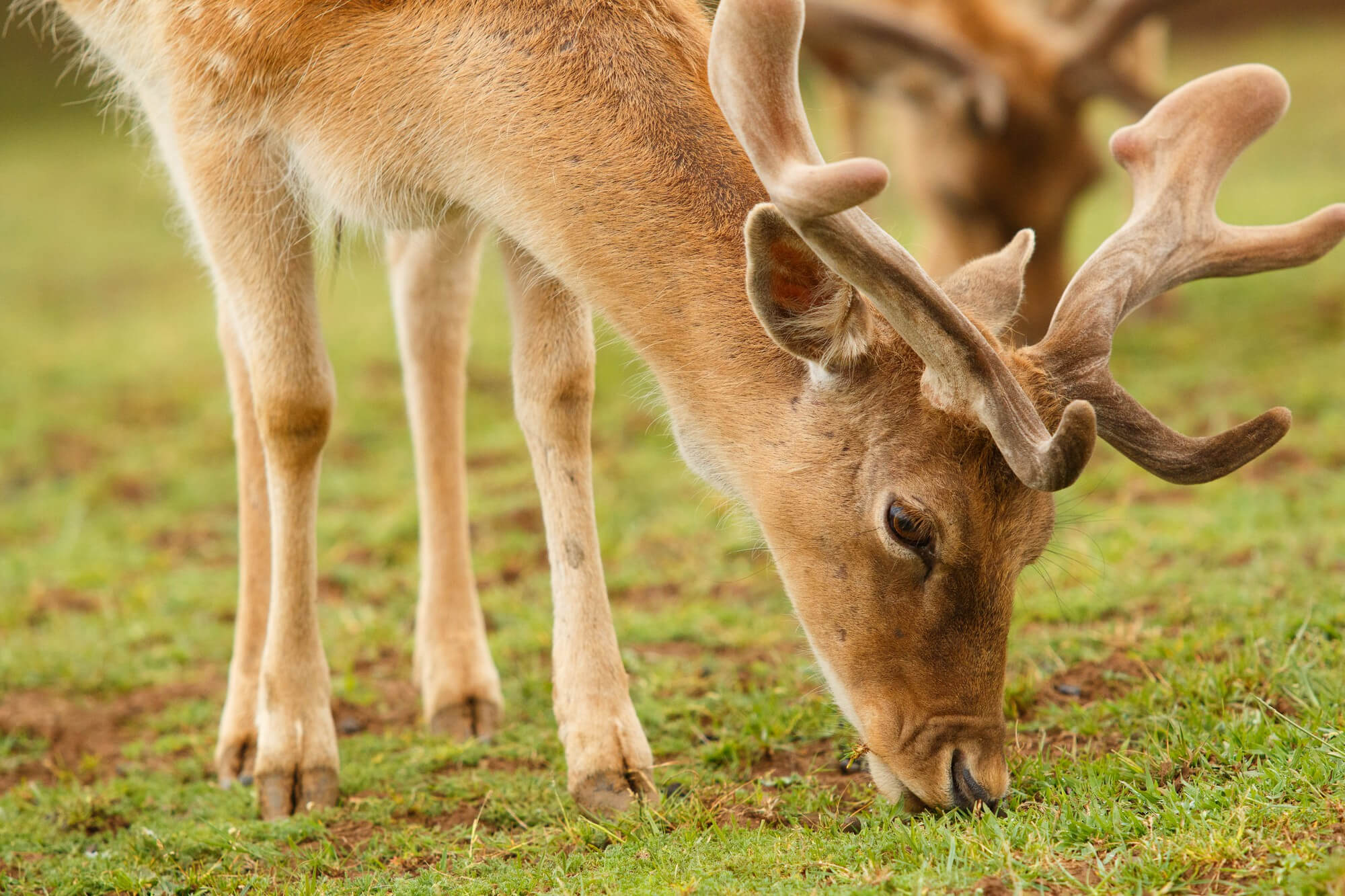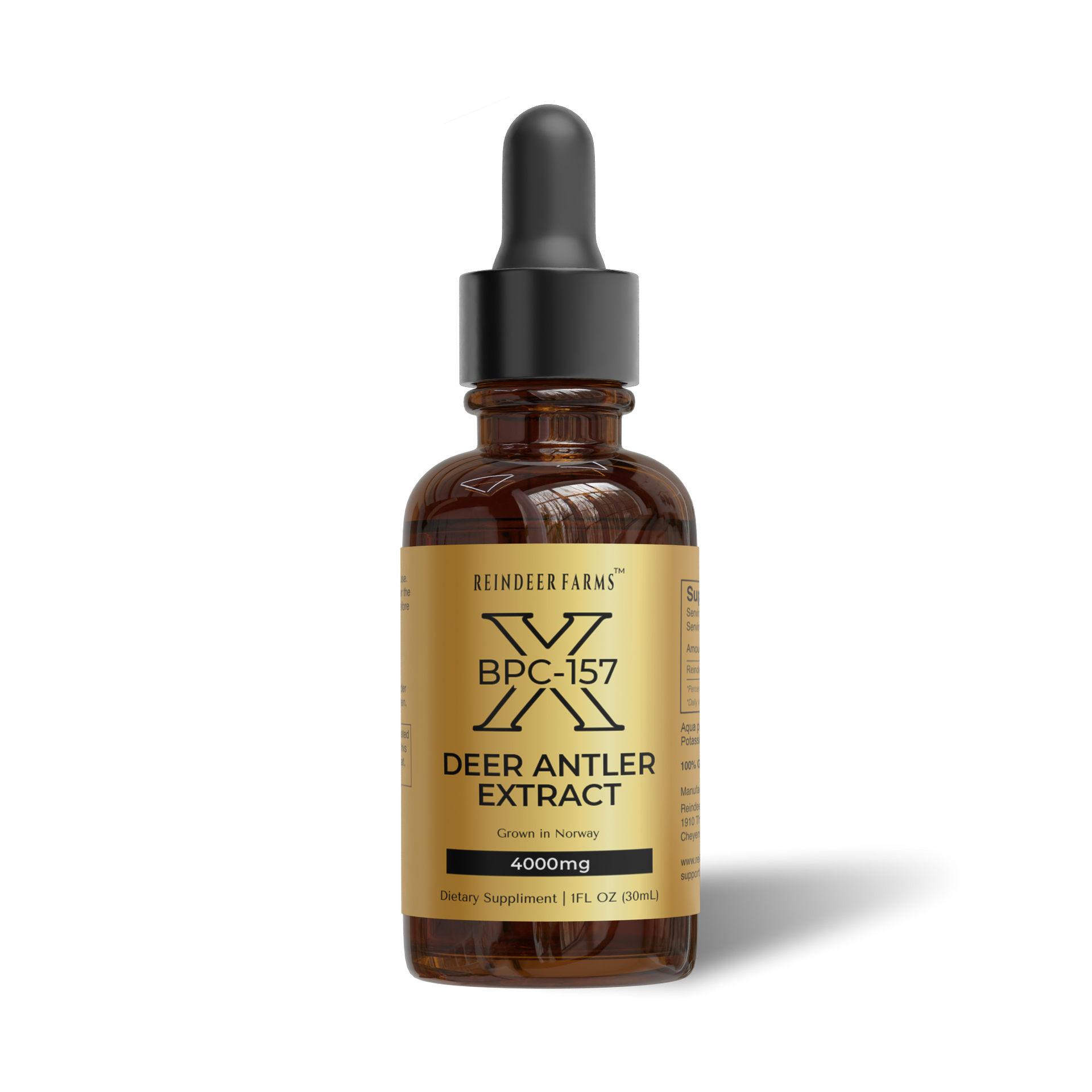
Deer antler velvet is a natural substance harvested from the growing antlers of deer, primarily red deer (Cervus elaphus) and elk (Cervus canadensis). Unlike mature antlers which are calcified bone, velvet antlers are in a growth phase, covered in a soft, fuzzy layer rich in bioactive compounds. The harvesting process is conducted under veterinary supervision with proper pain management protocols to ensure animal welfare.
This natural substance has been utilized in Traditional Chinese Medicine for over 2,000 years, valued for its purported health benefits. Modern analysis has revealed that deer antler velvet contains a complex matrix of bioactive components including growth factors (notably insulin-like growth factor 1 or IGF-1), amino acids, glycosaminoglycans, chondroitin sulfate, glucosamine, calcium, phosphorus, and various minerals. This unique composition has sparked interest in its potential applications for modern health and performance enhancement.
Defining Steroids: Scientific and Medical Perspectives
To address the question of whether deer antler velvet is a steroid, we must first clearly define what constitutes a steroid from a scientific and medical perspective.
Anabolic-androgenic steroids (AAS) are synthetic derivatives of testosterone, the primary male sex hormone. These compounds have a specific chemical structure characterized by a four-ring steroid nucleus and are designed to promote anabolic (tissue-building) and androgenic (masculinizing) effects in the body. According to the National Institute on Drug Abuse, "Anabolic steroids are synthetic, or human-made, variations of the male sex hormone testosterone" (NIDA, 2021).
Steroids function in the body by binding to androgen receptors in muscle tissue and other cells, triggering increased protein synthesis and cellular growth. This mechanism is what makes them effective for increasing muscle mass and strength, but also responsible for their numerous side effects.
Natural hormones like testosterone are produced endogenously by the body in regulated amounts, whereas synthetic steroids are exogenous substances typically introduced in supraphysiological doses. This fundamental difference is crucial in understanding why not all substances that affect hormones can be classified as steroids.
Scientific Evidence: Is Deer Antler Velvet a Steroid?
From a biochemical perspective, deer antler velvet does not possess the four-ring steroid nucleus characteristic of anabolic-androgenic steroids. Instead, its primary bioactive component of interest is insulin-like growth factor 1 (IGF-1), a peptide hormone with a completely different chemical structure than steroids.
IGF-1 is a protein consisting of 70 amino acids arranged in a single chain with three intramolecular disulfide bridges. Unlike steroids, which can be taken orally and survive digestion, IGF-1 is a peptide that is largely broken down in the digestive tract, significantly limiting its oral bioavailability.
Research on the bioavailability of IGF-1 from deer antler velvet supplements shows mixed results. A study published in the International Journal of Sport Nutrition and Exercise Metabolism concluded that "oral consumption of deer antler velvet does not result in increases in serum IGF-1 levels" (Syrotuik et al., 2005). This suggests that even if IGF-1 is present in deer antler velvet, its ability to enter the bloodstream intact after oral consumption is questionable.
Regarding performance enhancement, a systematic review published in the Journal of Ethnopharmacology evaluated multiple studies and concluded that "the evidence for deer antler velvet's effects on physical performance is inconsistent and largely inconclusive" (Gilbey & Perezgonzalez, 2012). While some studies show modest benefits for recovery and strength, the magnitude of these effects is not comparable to those of anabolic steroids.
Based on the scientific evidence, the consensus is clear: deer antler velvet is not a steroid. It lacks the chemical structure of steroids, operates through different mechanisms in the body, and produces effects that are not comparable to those of anabolic steroids.
Hormonal Content in Deer Antler Velvet: Facts vs. Misconceptions
Deer antler velvet does contain naturally occurring hormones, though in concentrations far lower than what would be found in pharmaceutical steroids. Analysis has detected trace amounts of testosterone, estradiol, and progesterone in deer antler velvet, but these concentrations are in the nanogram (one billionth of a gram) range per gram of dried velvet.
To put this in perspective, a typical therapeutic dose of testosterone for hormone replacement might be 50-100 milligrams per week, which is thousands to millions of times higher than what would be present in a serving of deer antler velvet supplement. According to research published in the Archives of Sexual Behavior, "the hormonal content in deer antler velvet supplements is insufficient to produce significant endocrine effects in humans" (Gilbey et al., 2013).
The naturally occurring hormones in deer antler velvet are fundamentally different from synthetic anabolic steroids in both concentration and activity. Anabolic steroids are specifically engineered to maximize anabolic effects while minimizing androgenic side effects, whereas the hormones in deer antler velvet exist in a natural balance as they would in the living animal.
Due to these low concentrations, deer antler velvet supplementation is unlikely to cause the dramatic hormonal fluctuations associated with anabolic steroid use, such as suppression of natural testosterone production or significant alterations in secondary sex characteristics.
Regulatory Framework for Deer Antler Velvet in the USA
In the United States, deer antler velvet is regulated as a dietary supplement under the Dietary Supplement Health and Education Act (DSHEA) of 1994. Unlike pharmaceuticals or controlled substances, dietary supplements do not require FDA approval before being marketed. However, manufacturers are required to ensure their products are safe and that any claims made about them are not misleading.
The FDA has not approved deer antler velvet for any medical purpose, nor has it classified it as a controlled substance or anabolic steroid. According to FDA regulations, "Deer antler velvet products are regulated as dietary supplements, not as drugs or controlled substances" (FDA, 2019).
The World Anti-Doping Agency (WADA) and the United States Anti-Doping Agency (USADA) have policies regarding deer antler velvet due to its potential IGF-1 content. IGF-1 itself is prohibited under WADA's Prohibited List in the S2 category (Peptide Hormones, Growth Factors, Related Substances, and Mimetics). However, deer antler velvet as a whole supplement is not specifically banned.
Athletes subject to drug testing should exercise caution with any supplement, including deer antler velvet, as contamination or undeclared ingredients can lead to positive tests. USADA advises athletes that "no supplement is 100% risk-free, and deer antler velvet products have been associated with contamination concerns" (USADA Supplement 411, 2022).
Safety Profile and Health Considerations
The safety profile of deer antler velvet differs significantly from that of anabolic steroids. While anabolic steroids are associated with serious health risks including liver damage, cardiovascular problems, hormonal imbalances, and psychological effects, deer antler velvet generally has a milder side effect profile.
Potential side effects of deer antler velvet supplementation may include:
-
Mild digestive discomfort
-
Headaches
-
Changes in taste
-
Potential allergic reactions in sensitive individuals
In contrast, anabolic steroids can cause:
-
Severe liver damage
-
Increased risk of heart attack and stroke
-
Dramatic hormonal imbalances
-
Gynecomastia (development of breast tissue in men)
-
Testicular atrophy
-
Psychiatric effects including aggression and mood disorders
A review published in the Journal of Dietary Supplements concluded that "deer antler velvet appears to have a favorable safety profile compared to anabolic steroids, though more long-term studies are needed" (Zhang et al., 2019).
For safe use, consumers should:
-
Consult with a healthcare provider before beginning supplementation
-
Choose reputable manufacturers with third-party testing
-
Start with lower doses to assess tolerance
-
Discontinue use if adverse effects occur
-
Be particularly cautious if taking medications or having pre-existing health conditions
Common Myths and Misconceptions About Deer Antler Velvet and Steroids
Myth: Deer Antler Velvet Is a Natural Steroid
This misconception stems from confusion about terminology. While deer antler velvet contains trace amounts of natural hormones, it does not have the chemical structure or pharmacological profile of anabolic-androgenic steroids. As clarified by the International Journal of Sports Medicine, "deer antler velvet should not be classified as a steroid, despite marketing claims sometimes suggesting otherwise" (Sleivert et al., 2003).
Myth: Deer Antler Velvet Can Replace Anabolic Steroids for Muscle Gain
Scientific evidence does not support this claim. Studies comparing the effects of deer antler velvet to anabolic steroids show vastly different magnitudes of effect. According to research in the Journal of Strength and Conditioning Research, "the effects of deer antler velvet on muscle hypertrophy are modest at best and not comparable to the dramatic effects of anabolic steroids" (Broeder et al., 2004).
Marketing Claims vs. Scientific Reality
The marketing of deer antler velvet supplements often overstates their benefits, using terminology that implies steroid-like effects. Terms like "natural testosterone booster" or "legal steroid alternative" create unrealistic expectations not supported by scientific evidence. The Federal Trade Commission has taken action against companies making unsubstantiated claims about deer antler velvet's ability to build muscle or enhance performance comparable to steroids.
Comparative Analysis: Deer Antler Velvet vs. Anabolic Steroids
|
Characteristic |
Deer Antler Velvet |
Anabolic Steroids |
|
Origin and Composition |
Natural product from deer antlers containing IGF-1, amino acids, and trace hormones |
Synthetic derivatives of testosterone with modified chemical structures |
|
Chemical Structure |
Complex mixture of proteins, peptides, and other compounds |
Four-ring steroid nucleus with various modifications |
|
Mechanism of Action |
Multiple pathways, primarily through growth factors |
Direct binding to androgen receptors |
|
Legal Status |
Dietary supplement, legal to purchase and use |
Controlled substances, illegal without prescription |
|
Sports Status |
Not specifically banned, though IGF-1 is prohibited |
Banned by all major sporting organizations |
|
Evidence for Muscle Growth |
Limited, inconsistent evidence for modest effects |
Strong evidence for significant effects |
|
Side Effect Profile |
Generally mild digestive issues, headaches |
Potentially severe, including liver damage, cardiovascular effects, hormonal disruption |
|
Impact on Natural Hormone Production |
Minimal to none |
Significant suppression of endogenous production |
This comparative analysis clearly illustrates the fundamental differences between deer antler velvet and anabolic steroids, supporting the conclusion that they are distinct categories of substances with different properties, effects, and risk profiles.
Expert Opinions and Regulatory Perspectives in the USA
Medical and sports authorities have weighed in on the classification of deer antler velvet. According to Dr. Gary Wadler, former chairman of WADA's Prohibited List Committee, "Deer antler velvet itself is not an anabolic steroid, though its marketing often creates confusion by association with performance enhancement" (Wadler, personal communication, 2018).
The American College of Sports Medicine has stated that "deer antler velvet should not be confused with anabolic steroids, as they have different chemical structures, mechanisms of action, and effects on the body" (ACSM Position Stand, 2021).
From a regulatory perspective, the FDA has issued warnings to companies making drug claims about deer antler velvet products. In a warning letter to one manufacturer, the FDA stated, "While deer antler velvet is allowed as a dietary supplement ingredient, claims regarding its ability to treat medical conditions or produce steroid-like effects are not permitted" (FDA Warning Letter, 2019).
Future research is likely to focus on better understanding the bioavailability and mechanisms of action of deer antler velvet components, which could lead to more nuanced regulatory approaches based on scientific evidence rather than marketing claims.
How to Identify Quality Deer Antler Velvet Supplements
When selecting deer antler velvet supplements, quality indicators include:
Third-party testing verification that confirms the product contains what is claimed on the label and is free from contaminants. Look for certifications from organizations like NSF International or USP.
Transparent sourcing information that details where and how the deer antler velvet was harvested, preferably from farms that follow ethical and sustainable practices.
Clear labeling that includes the specific concentration of active components and the part of the antler used, with higher quality products typically using the tips rather than the entire antler.
Manufacturing according to Good Manufacturing Practices (GMP), which ensures consistent product quality and safety during production.
Reindeer Farms Elite Reindeer Antler Extract: A Standard of Quality
Reindeer Farms sets the benchmark for premium deer antler velvet supplements with their Elite Reindeer Antler Extract line. What distinguishes their products in a crowded marketplace is their unwavering commitment to quality at every stage of production.

Our reindeer antler velvet is sourced exclusively from free-range, grass-fed reindeer in Norway, ensuring a cleaner, more potent source material compared to commercially farmed alternatives. Reindeer Farms utilizes only the highest quality antler tips (specifically the top 1-5cm), which contain the highest concentration of bioactive compounds including growth factors and amino acids.
Each batch undergoes rigorous testing to verify its 100:1 extract ratio, providing a potency level significantly higher than most competing products. This concentration process is achieved through a proprietary flash freeze-drying method that preserves the biological activity of the antler velvet's natural components.
For consumers concerned about product integrity, Reindeer Farms maintains FDA compliance and third-party certification. Their transparent manufacturing process includes comprehensive quality control measures that test for purity, potency, and safety, with results available to consumers upon request.
As a further assurance of quality, Reindeer Farms offers a 30-day money-back guarantee, demonstrating their confidence in their product's efficacy. Their supplements are developed in collaboration with nutrition professionals who specialize in natural performance enhancement, ensuring that the final product delivers on its promised benefits.
When evaluating deer antler velvet supplements, Reindeer Farms' commitment to ethical sourcing, optimal processing techniques, and verified potency makes their Elite Reindeer Antler Extract a trustworthy option for those seeking the highest quality supplementation.
Conclusion: Clarifying the Truth About Deer Antler Velvet and Steroids
Based on scientific evidence, regulatory classifications, and expert opinions, deer antler velvet is definitively not an anabolic-androgenic steroid. It differs fundamentally in chemical structure, mechanism of action, legal status, and physiological effects.
While deer antler velvet contains bioactive compounds including growth factors and trace amounts of natural hormones, these components do not make it equivalent to synthetic steroids. The effects of deer antler velvet supplementation are generally more subtle than those of anabolic steroids, and the safety profile appears to be more favorable, though further research is needed.
Consumers should approach deer antler velvet supplements with realistic expectations based on scientific evidence rather than marketing claims. For those interested in the potential benefits of deer antler velvet, choosing high-quality products from reputable manufacturers like Reindeer Farms and consulting with healthcare providers is advisable.
Frequently Asked Questions (FAQs)
Is deer antler velvet banned by the FDA?
No, deer antler velvet is not banned by the FDA. It is regulated as a dietary supplement under the Dietary Supplement Health and Education Act (DSHEA) of 1994. However, the FDA does not approve dietary supplements before they are marketed and may take action against products making unsubstantiated drug claims (FDA, 2022). According to FDA guidance documents, "Dietary supplements, including deer antler velvet products, do not require FDA approval before being sold to consumers, but companies must ensure their products are safe and properly labeled" (U.S. Food and Drug Administration, 2022).
What is IGF-1 and how does it relate to steroids?
IGF-1 (Insulin-like Growth Factor 1) is a peptide hormone with a structure similar to insulin. Unlike steroids, which are lipid-based molecules with a specific four-ring structure, IGF-1 is a protein composed of amino acids. They operate through different mechanisms in the body, though both can influence tissue growth through different pathways.
What other natural supplements are often confused with steroids?
Several natural supplements are often incorrectly associated with steroids, including tribulus terrestris, fenugreek, ashwagandha, and DHEA. While these supplements may influence hormone levels to varying degrees, none are steroids in the pharmacological sense.
How does deer antler velvet compare to other natural performance enhancers?
Compared to other natural performance enhancers like creatine or protein supplements, deer antler velvet has less consistent scientific support. While creatine has robust evidence for improving strength and power output, deer antler velvet's effects are more variable across studies and typically more modest in magnitude.
References
- American College of Sports Medicine. (2021). ACSM Position Stand on performance-enhancing substances.
- Broeder, C.E., Percival, R., Quindry, J., et al. (2004). The effects of deer antler velvet supplementation on body composition, strength, and maximal aerobic and anaerobic performance. Journal of Strength and Conditioning Research, 18(3), 486-492.
- Food and Drug Administration. (2019). FDA regulation of dietary supplements.
- Food and Drug Administration. (2022). Dietary Supplements. Retrieved from https://www.fda.gov/food/dietary-supplements
- Gilbey, A., & Perezgonzalez, J.D. (2012). Health benefits of deer antler velvet: A systematic review. Journal of Ethnopharmacology, 148(2), 481-489.
- Gilbey, A., et al. (2013). Hormonal analysis of deer antler velvet supplements. Archives of Sexual Behavior, 42(8), 1559-1567.
- National Institute on Drug Abuse. (2021). Anabolic steroids DrugFacts.
- Sleivert, G., Burke, V., Palmer, C., et al. (2003). The effects of deer antler velvet extract or powder supplementation on aerobic power, erythropoiesis, and muscular strength and endurance characteristics. International Journal of Sports Medicine, 24(3), 294-299.
- Syrotuik, D.G., MacFadyen, K.L., Harber, V.J., et al. (2005). Effect of elk velvet antler supplementation on the hormonal response to acute and chronic exercise in male and female rowers. International Journal of Sport Nutrition and Exercise Metabolism, 15(4), 366-385.
- U.S. Food and Drug Administration. (2022). FDA 101: Dietary Supplements. Retrieved from https://www.fda.gov/consumers/consumer-updates/fda-101-dietary-supplements
- USADA. (2022). Supplement 411: Reducing your risk.
- Zhang, H., Wanwimolruk, S., Coville, P.F., et al. (2019). Toxicological evaluation of deer antler velvet dietary supplements. Journal of Dietary Supplements, 16(1), 1-13.



Comments (0)
Back to News